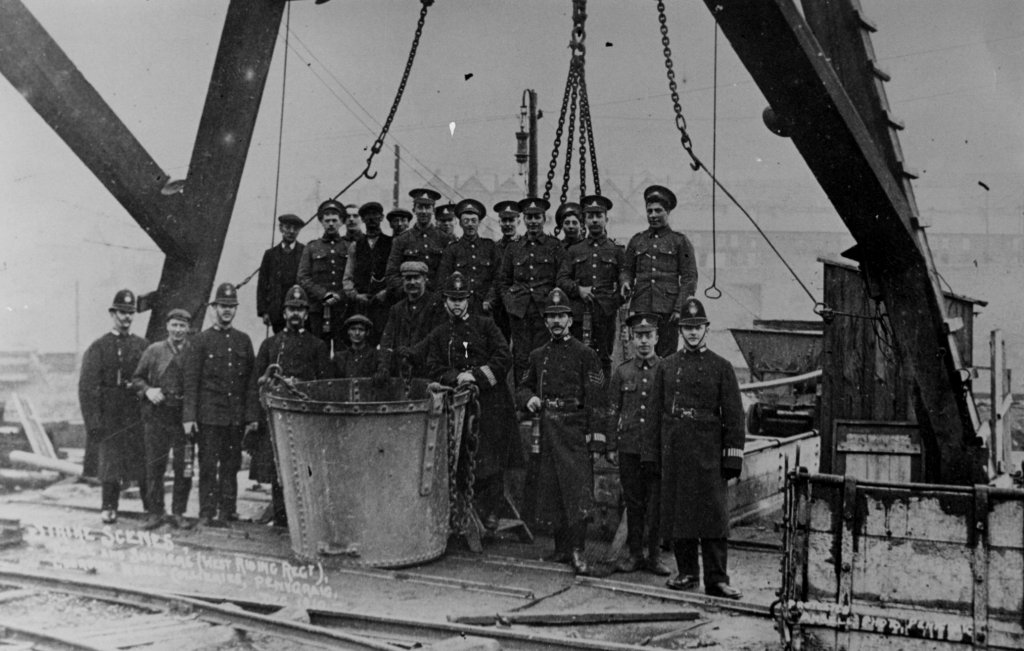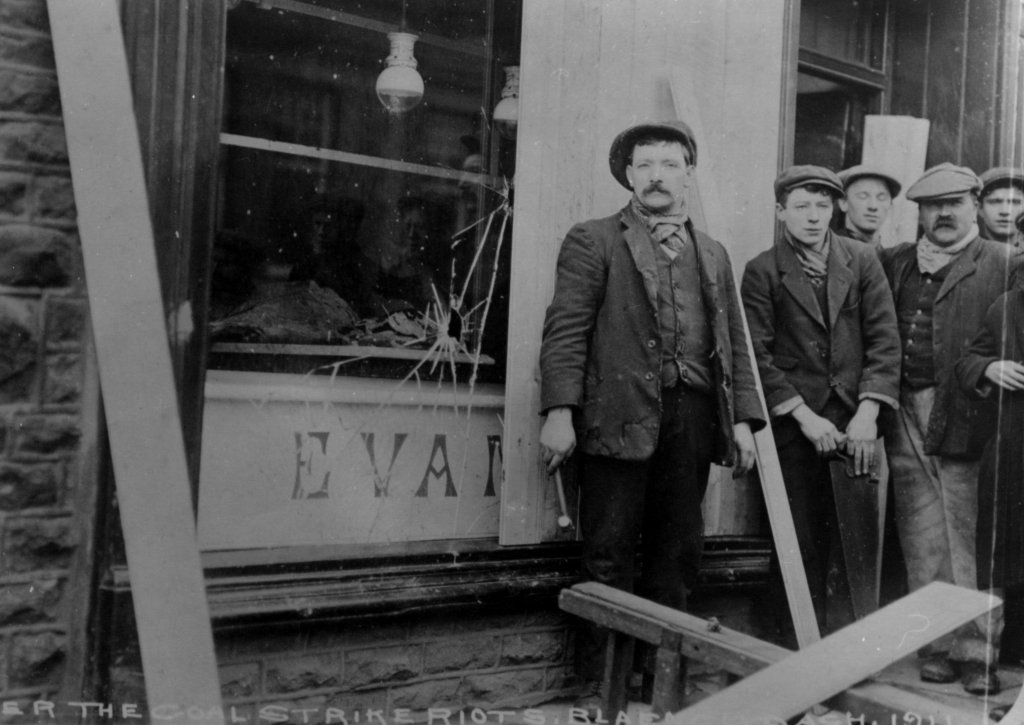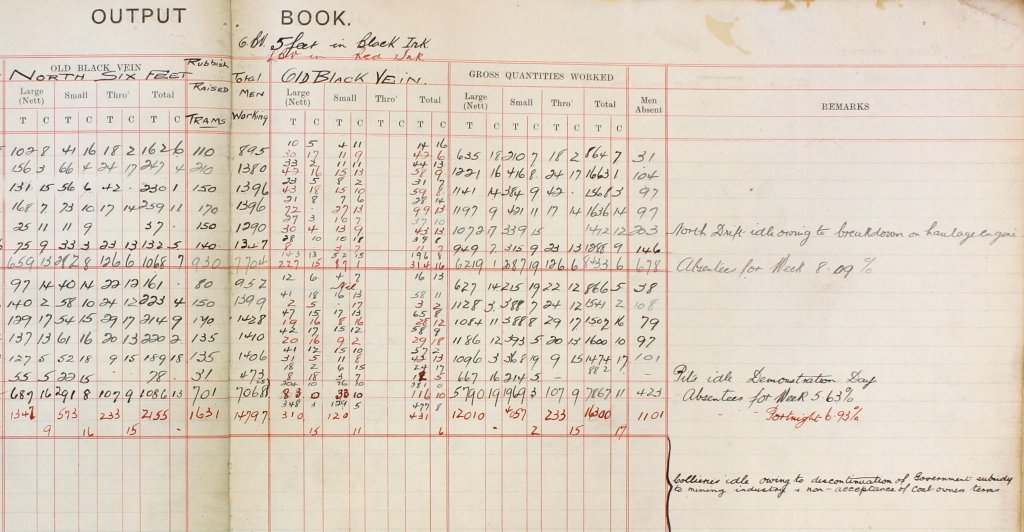In the 20th century, miners fought for the right to earn a living wage. Strikes were used to get their voices heard, but were not always successful.
 Police and soldiers guarding Naval Colliery during the Tonypandy Riots, Dec 1910 (DNCB/14/1/4/1)
Police and soldiers guarding Naval Colliery during the Tonypandy Riots, Dec 1910 (DNCB/14/1/4/1)The Tonypandy Riots, 1910-1911, saw miners involved in a battle over wages with the Cambrian Combine Collieries. The strike was defeated but the struggle established the demand for a minimum wage in 1912.
 After the coal strike riots, Blaenclydach, 1911 (DNCB/14/1/4/3)
After the coal strike riots, Blaenclydach, 1911 (DNCB/14/1/4/3)In 1926, the Miners’ Federation of Great Britain spoke out against proposals to reduce wages and extend the working day.
 Extract from output book, United National Collieries, detailing stoppage due to strike, May 1926 (D1411/2/4/3)
Extract from output book, United National Collieries, detailing stoppage due to strike, May 1926 (D1411/2/4/3)A national strike was called in May 1926 in support of the miners. After 9 days, the general strike collapsed but the miners continued their dispute. The strike ended in defeat for the miners who returned to work in December 1926 with a severe reduction in wages.


